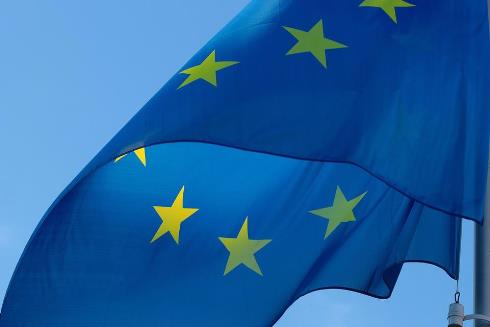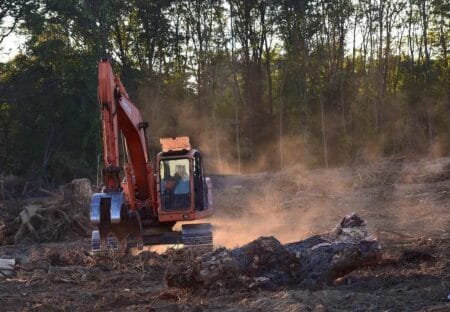One of the most ambitious trade and subsequently political projects of its kind, the EU has brought together disparate, diverse economies, and progressively introduced measures over the years to bring markets closer together.
A merchant in Germany must be able to transact with a buyer in Poland, Ireland, France or Belgium on the same basis as each other, and ideally, on the same basis as a buyer much closer to home. But in order to achieve a frictionless market between often competing and sometimes contradictory legal systems, a broader effort of assimilation is required.
Common frameworks are vital to harmonisation across the European Union, and are the agreed mechanism through which common standards are drafted for implementation throughout the bloc, across different areas of policy. Agreed at the Commission level, frameworks are then consolidated into directives and regulations respectively, which take either indirect or direct effect on laws at a national level throughout the EU.
The logic behind EU frameworks is sound, and seems unobjectionable given the end goal of a more harmonised market. However, in practice, there are a number of difficulties that arise whenever frameworks are drawn up, and these can arise throughout the phases of consolidation across various policy areas. The follow 3 examples show just some of the questions this process can throw up for making the right policy call.
Gambling Sector
Gambling in the EU is an industry worth some 84.9 billion euros annually, according to the European Commission’s own figures. Furthermore, the industry is growing at a rate of 3% per annum, with an estimated 6.8 million online gamblers throughout the bloc, playing at casino and betting sites often run by significant commercial operators. It’s a large, growing and increasingly regulated industry, but few could describe the approach across EU member states as consistent.
Take the UK, for example – a large, regulated gambling market, where white listed casino operators are able to run their business under license from the UK Gambling Commission. But in Germany, the situation is significantly more complicated, and there are currently no new licenses for operators being issued in Germany. In fact, casinos in Germany are more likely to be owned by the state, with street arcades more prevalent, and big money casinos a less common sight.
Similarly, in Portugal, regulators are preparing to reopen discussions on their recently revised gambling laws, to take into account ideas like shared player pools in online poker, which would see Portugal, Italy, France and some other countries sharing players.
At an EU level, there is no specific European law regulating gambling, which remains an issue for individual member states to control. Recognising the limitations of national authority in an online market, the European Commission published a communication and working paper in 2012, which sets out the European approach to the sector.
For the time being, gambling markets remain often at odds with near neighbors, and nowhere near harmonised throughout the EU. This presents problems for operators, who have to deal with multiple different compliance regimes in every country where they operate, or who might easily find themselves running an illegal business in one jurisdiction, while complying in another.
Similarly, for players, there is a lack of certainty, with different gambling regulators, jurisdictions and rules all in play at once. A common policy in this area could better align European markets, and present better commercial opportunities for bigger operators on a pan-European basis. At the same time, it could sort out many of the difficulties that arise from dealing with online operators, including their tendency to locate offshore for tax efficiency reasons.
There are clear opportunities in developing a more solid common framework around gambling. However, with such significant divergence between contrasting national policies, and divergent views of gambling across the European Union, the Commission would have an uphill struggle to unite these markets anytime soon.
Immigration
In stark contrast, immigration is a policy area where significant steps have been taken towards harmonisation, and adopting a common framework throughout the EU, in respect of migrants to, and within, the European Union.
The European Union saw 4.7 million immigrate to the block, across the totality of its member states in 2015, of which 2.4 million were citizens from outside the EU.
Aside from the treaty rights and obligations associated with free movement of people, a central pillar of the European Union’s Four Freedoms, “EU countries have agreed to develop a common immigration policy to ensure that legal migration to the EU is well managed, to improve integration measures for migrants and their families and to enhance cooperation with migrants’ countries.” Source – European Commission.
However, in practice, immigration is proving to be a challenging issue for the EU, both politically and as a result, institutionally. While the framework documentation is in place, implementation can be described as patchy at best, and still very inconsistent between member states.
Member states do still have some discretion in exercising immigration policy, although this is severely restricted by their obligations under EU law. Some Easter member state countries have even adopted a harsher approach still, with suggestions of willful breaches of EU provisions in order to control immigration at a national level.
Similarly, the decision of the UK to leave the European Union in 2016 was thought to have been fueled in part by immigration, and by the loss of national sovereignty this, and EU restrictions more broadly, engender.
A politically charged issue throughout the European Union, it now seems increasingly clear that a truly uniform policy to immigration, whether or not it is desirable economically, verges on the unworkable for the union. Political reality demands a degree of flexibility, and as has been demonstrated by the Brexit vote, member states are prepared to assert their national sovereignty on issues such as immigration, where common EU policy is found wanting.
Energy
Arguably, the European Union is much more effective in pulling together member states to agree and set the policy agenda in the energy sector. This is unsurprising in many respects – the European Union was initially founded as the European Coal and Steel Community, which ultimately morphed into the significantly larger trading and political bloc of today.
According to Commission statistics, the EU still imports around 50% of its energy requirements, at a total annual cost of 350 billion euros. There are also environmental issues, as well as concerns about dwindling fossil fuel reserves, and the need to find cleaner, more sustainable forms of energy.
In order to achieve the stated objectives of the European Union in this area, goals have been set out for 2020, 2035, and 2050. These goals will see cooperation at the highest level between member states, and thanks to the agreed frameworks, there are already significant gains being made.
Energy is absolutely critical to the European economy, and as a result, a precious commodity for the bloc. At the same time, relying on external partners for imported energy holds the potential for political difficulties, as well as economic challenges. At the same time, the European Union as an entity has a better chance of tackling challenges associated with climate change, and with developing renewable energies, that many member states would have acting independently.
While the policy is mostly common throughout the EU, there are still some key areas of divergence. Different countries have their own views on the most effective way to meet their local energy needs, and like so many other areas of divergence that remain between member states, it is practically difficult to harmonise these requirements.
In Germany for example, policy makers have decided to close down nuclear power facilities, and opt instead to put more investment into renewable technologies – thought to be more environmentally friendly, but less efficient energy generators in their current forms. Neighbors Poland, on the other hand, have an altogether different approach.
Instead of following the German model, Poland is favoring shale gas, as a means of relieving dependency on Russia for energy imports, as well as actively considering building their first nuclear power facilities.
Member states are, for the time being, still able to choose the energy mix that most suits their needs, within the parameters set up by EU law in other areas. While harmonisation efforts are moving at pace, and some strong results have been achieved, there is not complete parity yet. The different energy needs of member states, combined with their own geopolitical challenges means for the time being at least, divergence of this kind is necessary – however desirable a common policy may be.
EU Frameworks: A Work in Progress
The ideas underpinning EU harmonisation and the practical challenges associated with bringing together different countries, societies and economies, give rise to a natural conflict. On the one hand, the European economy benefits significantly from harmonisation, as well as providing benefits for consumers, in terms of regulatory certainty.
But the realities of politics at a national and continental level means that the aim of establishing common ground is an ongoing task. For the time being, at least, strong differences remain across a number of sectors, while in others the mission is closer to completion. In the near future, it seems likely that more efforts will be undertaken to unite European markets towards the ultimate goal of a common, EU-wide approach to sectoral governance.









